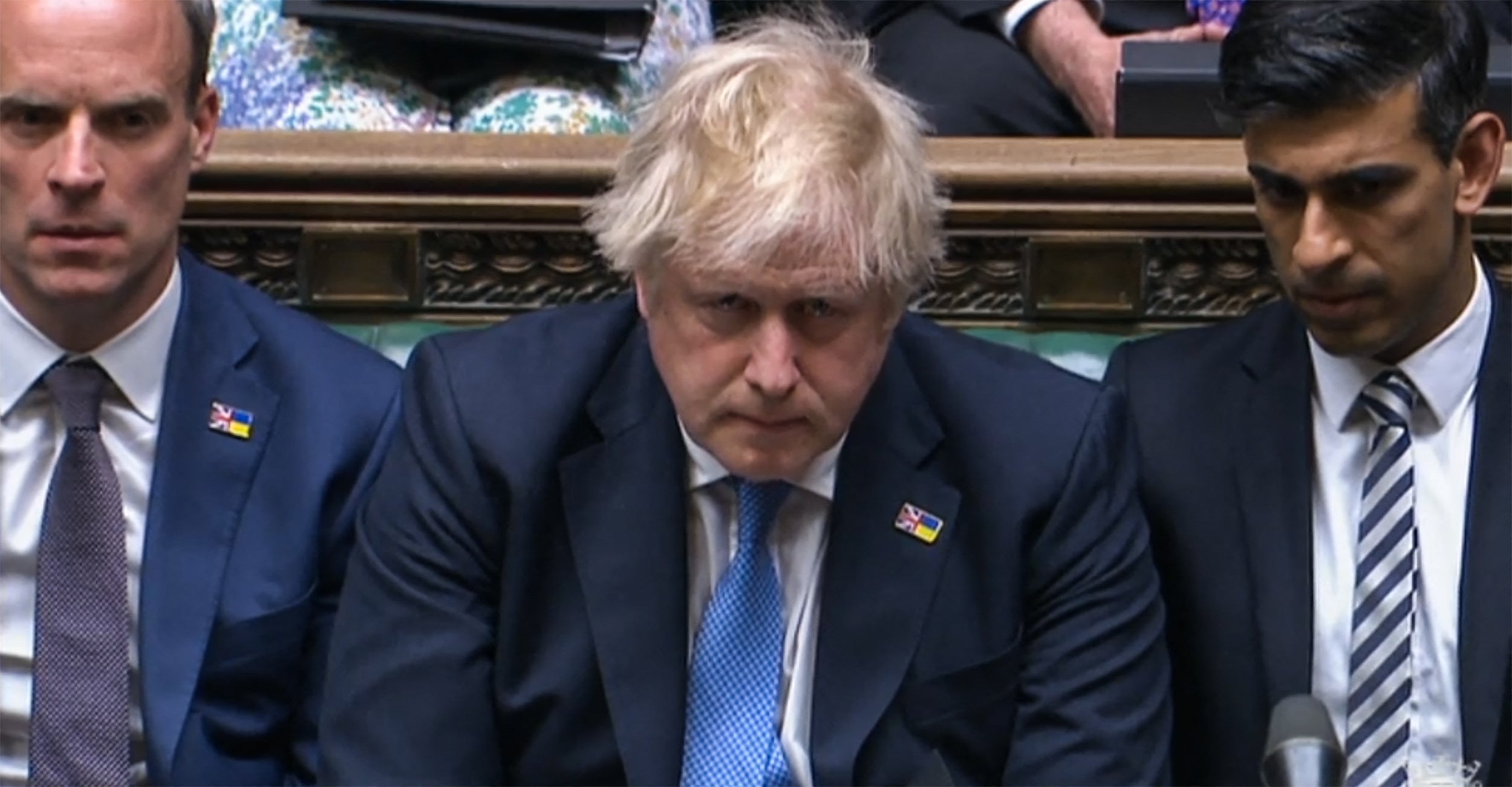How Partygate vote on inquiry into Boris Johnson will play out in House of Commons
The prime minister avoids an excruciating process thanks to his India trade trip, as Sean O’Grady explains


By luck or design, it is probably just as well that the prime minister is away on geopolitical business in India as the House of Commons comes to vote on whether to refer him to its committee on privileges.
It is (another) unprecedented moment in his career, and a deeply embarrassing one. Indeed, it is intended also to be awkward for some Conservative MPs in marginal seats who will be accused by their opponents of seeking to prolong the Partygate cover-up by denying proper parliament scrutiny, making them complicit in the lying about Covid law-breaking.
It promises to be an excruciating process, though the prime minister will not have to endure it himself as he busies himself in India.
The motion has been well-designed. It has been given strong cross-party backing — tabled by Keir Starmer and the Westminster leaders of the Liberal Democrats, SNP, Greens, Plaid Cymru, SDLP and Alliance (leaving out only the Democratic Unionists and abstentionist Sinn Fein).
It also allows for the Johnson case to be looked at only after the various other reviews and investigations are completed, thus removing a key objection. The motion has been further strengthened by the offer of the committee chair, Chris Bryant, to recuse himself from the proceedings.
The motion reads:
“That, this House
(1) notes that, given the issue of fixed penalty notices by the police in relation to events in 10 Downing Street and the Cabinet Office, assertions the Rt hon Member for Uxbridge and South Ruislip has made on the floor of the House about the legality of activities in 10 Downing Street and the Cabinet Office under Covid regulations, including but not limited to the following answers given at Prime Minister’s Questions: 1 December 2021, that all guidance was followed in No. 10., Official Report vol. 704, col. 909; 8 December 2021 that I have been repeatedly assured since these allegations emerged that there was no party and that no Covid rules were broken, Official Report vol. 705, col. 372; 8 December 2021 that I am sickened myself and furious about that, but I repeat what I have said to him: I have been repeatedly assured that the rules were not broken, Official Report vol. 705, col. 372 and 8 December 2021 the guidance was followed and the rules were followed at all times, Official Report vol. 705, col. 379, appear to amount to misleading the House; and
(2) orders that this matter be referred to the Committee of Privileges to consider whether the hon Member’s conduct amounted to a contempt of the House, but that the Committee shall not begin substantive consideration of the matter until the inquiries currently being conducted by the Metropolitan Police have been concluded.”
It will thus be confined to Johnson’s carefully worded answers to questions in the Commons, and any committee inquiry will take place some weeks in the future, possibly even in the autumn after the summer recess.
It is perfectly possible that, by the time the committee reports, Partygate will have resolved itself in political terms. Johnson and his allies may seek to further amend and water down the remit of the committee. And there may be some comfort in the fact that there are four Conservatives on the committee of seven MPs (six if Bryant absents himself), though not all are unconditional Johnson supporters.
A well-established convention is that no MP should knowingly mislead the house except on rare matters of national security. However, there is no firm mechanism to determine whether a member has knowingly misled the house. The independent adviser on the ministerial code, Lord Geidt, could consider it but would have to be invited to do so by the PM and there’s no sign of that. The speaker has no power to adjudicate on such matters, despite frequent invitations to do so via points of order. Lying is not a subject for the parliamentary commissioner on standards and the standards committee. This leaves only the Committee of Privileges, which faces an unenviable task if the Commons votes for it. Whatever the outcome, most voters will have long since formed their own opinion.



Join our commenting forum
Join thought-provoking conversations, follow other Independent readers and see their replies
Comments